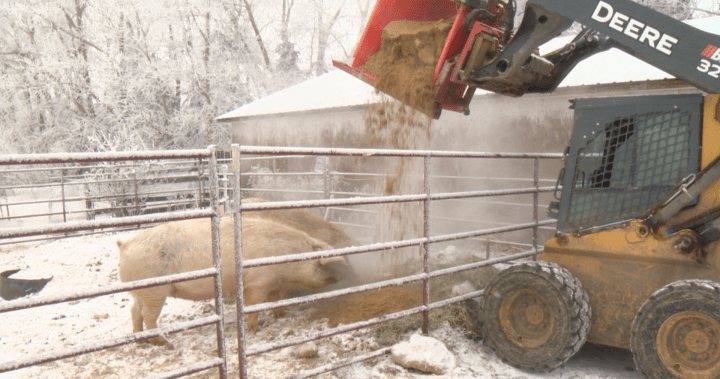aGRO Systems, founded by Victoria Ross, has pioneered a sustainable solution for managing spent grain, a byproduct of the brewing process. Traditionally destined for landfills or compost facilities, spent grain, rich in protein and other nutrients, is now being repurposed as livestock feed, creating a closed-loop system that benefits both breweries and ranchers in Alberta. Since its inception in 2018, aGRO Systems has diverted over 50 million pounds of spent grain from landfills, with over seven million pounds diverted in 2024 alone. This innovative approach not only addresses waste management challenges within the brewing industry but also provides a cost-effective and nutritious feed supplement for livestock, contributing to the economic viability of local ranches.
The genesis of aGRO Systems stemmed from Ross’s personal experience witnessing her father’s struggle to maintain their family ranch. Recognizing the financial pressures faced by many farmers and ranchers, who often require off-farm employment to make ends meet, Ross sought to develop a sustainable business model that could alleviate these economic burdens. Inspired by the concept of circular economies, she identified the potential of spent grain as a valuable resource that could be redirected to support local agriculture. By connecting breweries with ranchers, aGRO Systems created a synergistic partnership that minimizes waste, reduces feed costs, and strengthens the local agricultural community.
The brewing process generates substantial amounts of spent grain, which, in its wet form, contains around 5-6% crude protein. However, upon drying, the protein content increases to approximately 25%, surpassing the typical 12-13% protein content of standard cattle feed. This nutrient-rich byproduct offers a cost-effective alternative to traditional feed sources, contributing to the financial stability of ranches. For breweries, partnering with aGRO Systems provides a sustainable waste management solution, reducing their environmental footprint and aligning with increasing consumer demand for environmentally conscious practices. This mutually beneficial partnership exemplifies a circular economy model, where waste from one industry becomes a valuable resource for another.
Brendan Barnett, representing 88 Brewing, one of aGRO Systems’ 33 partner breweries in Calgary, attests to the seamless integration and positive impact of this collaboration. He describes the partnership as a “100% win-win”, highlighting the synergistic nature of the relationship where both parties benefit without complex business arrangements. 88 Brewing alone contributed 660,000 pounds of spent grain to the total diverted in 2024, showcasing the significant impact a single brewery can have when participating in such initiatives. This collaborative approach fosters a sense of community and shared responsibility towards environmental sustainability and economic growth within the region.
Looking ahead, aGRO Systems envisions expanding its impact beyond waste diversion and cost reduction. Recognizing the challenges faced by farmers and ranchers in reaching consumers directly, Ross plans to launch the “Little Farm Store” within the next two years. This initiative aims to provide a direct sales channel for the farmers and ranchers within the aGRO network, enabling them to market their products directly to consumers and bypass traditional distribution channels. This forward-thinking approach further empowers local producers, strengthens the local food system, and fosters a more direct connection between consumers and the source of their food.
Furthermore, aGRO Systems plans to expand its geographical reach, extending its services to breweries and ranchers in and around Edmonton this summer. This expansion will broaden the positive impact of their sustainable practices, diverting more spent grain from landfills, supporting more ranchers with cost-effective feed solutions, and ultimately, strengthening the agricultural sector across a wider area of Alberta. By replicating their successful model in new regions, aGRO Systems demonstrates the scalability and adaptability of their approach, offering a promising model for sustainable waste management and agricultural development that could be adopted in other communities.

